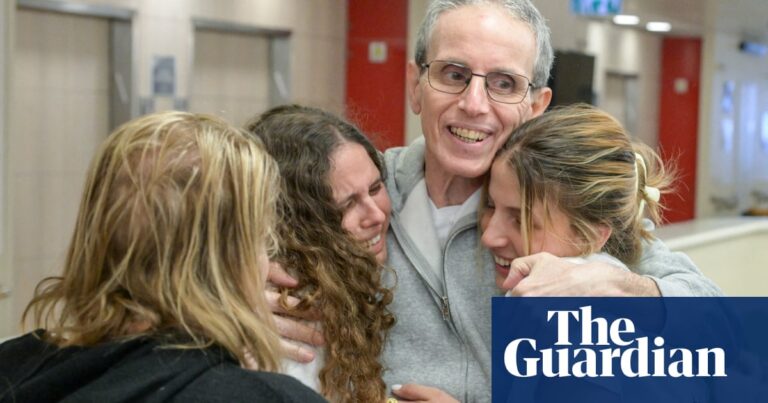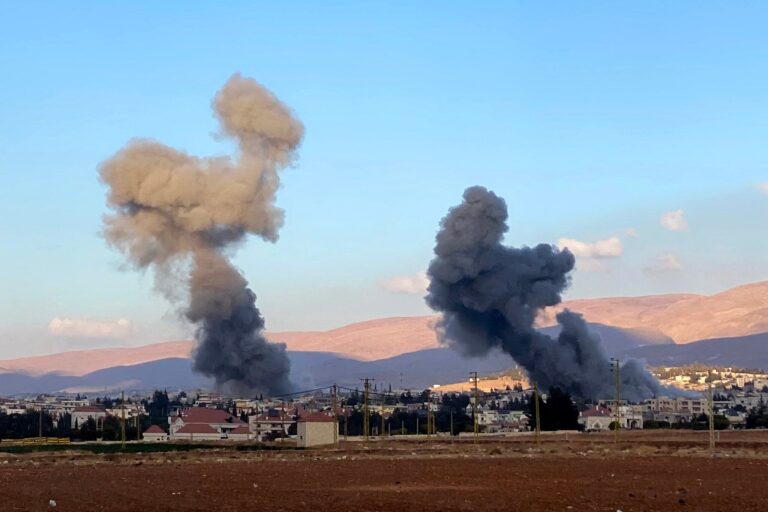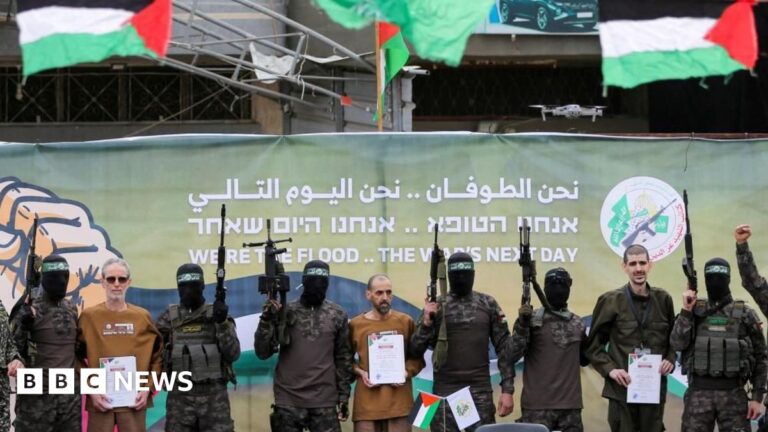The faces are haunting: Or Levy, Eli Sharabi, and Ohad Ben Ami. Gaunt and hollow, their bodies frail, tell the story of 491 days in Hamas captivity. Sunken eyes, protruding bones, and skeletal frames ring an instant bell for Israelis and Jews everywhere: survivors of the Holocaust, the Muselmann of the concentration camps, and those who starved to the brink of death.
But when these hostages came home precisely 80 years after the fall of the Nazi regime, the world’s response was unimaginably detached.
The BBC, ever selective in its moral outrage, conveniently omitted their suffering from its homepage. CNN, on the other hand, saw fit to highlight the “emaciated” condition of Palestinian prisoners released in exchange-prisoners who, it must be said, received three meals a day, medical care, and family visits. The comparison is not only absurd; it is obscene.
The myth of Palestinian ‘prisoner suffering’
Let’s set the record straight. Palestinian prisoners in Israeli jails are not hostages; they are convicted criminals, many guilty of terrorism and murder. Their detentions follow trials, evidence, and due process – luxuries Hamas does not grant its captives.
Comparing their conditions is a crime.
Palestinian prisoners in Israel receive complete medical care, dental services, and nutritious meals. They are not starved, beaten, or deprived of basic human needs. Every Palestinian prisoner is entitled to family visits monitored by the Red Cross.
Israeli hostages in Gaza? They were locked in darkness, without contact with their loved ones. Some of them were operated on without anesthesia; others had heavy injuries for more than a year without any medical treatment.
The Palestinian prisoners can object to their detention in Israeli courts and with the help of lawyers. Hostages in Gaza had no rights, no trials – only the mercy of their captors.
You would be surprised to hear that Palestinian prisoners have access to books, television, newspapers, and, in some cases, even higher education programs. The Israeli hostages, meanwhile, were wasting away in underground dungeons, deprived of sunlight, human dignity, and proper medical care, let alone clean water and air.
To equate these two realities is an insult to morality. Those parroting Hamas’s propaganda about prisoner mistreatment should spend a single night in Hamas captivity – if they are lucky enough to survive it.
Hamas’s brutal spectacle
Hamas paraded our hostages before their release, forcing them to stand on a stage in front of a crowd of jubilant Gazans. The cruelty was calculated. Hamas terrorists made sure the world saw Israeli suffering as a spectacle before begrudgingly handing them over to the Red Cross.
And speaking of the Red Cross, they are allowed to visit Palestinian prisoners in Israeli jails, while not one Israeli hostage met with them throughout their entire time in captivity. And yet, some in the international community still buy into Hamas’s narrative of victimhood, of “humanitarian suffering” in Gaza, as if those holding hostages in cages and underground tunnels can ever be cast as the oppressed.
Where are the human rights organizations? Where are the protests by the same voices that, at one time or another, joined in rapid succession to loudly condemn Israel? They are mute, unconcerned with Israeli victims unless the tragedy can somehow be contorted to become part of a Jewish state condemnation.
The return of Or, Eli, and Ohad should ring as a kind of wake-up call. There are still 76 hostages left in Gaza, some of them dead, all of them subjected to inhumane conditions. The haunting images of these released captives make one thing clear: Every moment they remain in Hamas’s grip is another moment of irreversible physical and psychological damage.
And yet, as Israeli families weep for their loved ones, as a nation wrestles with the horror of these images, politicians continue to play their games.
Opposition leader Yair Lapid seized the moment to accuse Prime Minister Benjamin Netanyahu of failing to act sooner. Simultaneously, Netanyahu vowed retaliation, his government issuing vague promises of “appropriate action.” But where is the concrete plan? Where is the strategy to bring them all home, alive, before they are too far gone?
Foreign Minister Gideon Sa’ar put it bluntly: “The pictures don’t lie: The Hamas terrorists and the Gaza residents look great. The Israeli hostages look like Holocaust survivors.”
Indeed, the contrast could not be starker. The hostages’ skeletal frames stand as a living indictment of Hamas’s barbarism, an undeniable crime against humanity. The fact that some still equivocate, still seek to “both sides” this horror, is a stain on the conscience of the world.
We must be clear: Hamas does not take hostages. It takes human lives and reduces them to bargaining chips. Never Again is now. And if Israel does not act decisively, if the international community does not finally recognize this evil for what it is, we risk failing those still trapped in the depths of Gaza.
They must be freed before it’s too late.



